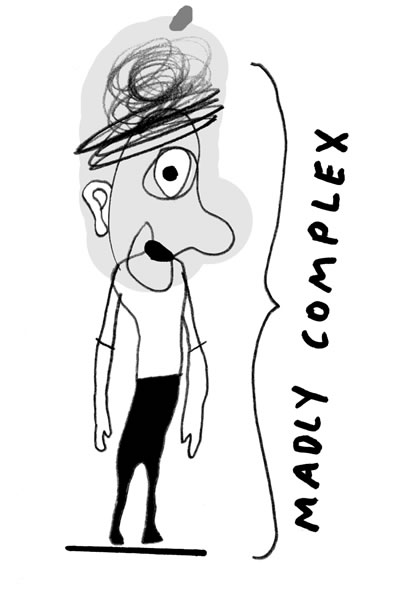First published on November 2011.
Creativity is the way our mental and physical selves run for the realisation of our ideas. It is with this human operating system that we have evolved from cavemen pointing at mammoths to astronauts pointing at earth.
Our fundamental instinct makes us determined to survive. The realization that collaboration improved our chances of success produced language and the ability to share knowledge. Add these ‘tools’ to the fact that trial and error is the intuitive human learning style and ask whether our education system understands our species.
I believe education should help us appreciate that the method we use to create everything from a submarine to a song is a mixture of knowledge and skills, both practical and cognitive. This questions the logic of delineating subjects clumsily into ‘vocational’ (i.e. skills) or ‘academic’ (i.e. knowledge). This distinction is overstated in education.
Subjects are bodies of knowledge and though the perpetual debate over what constitutes a ‘relevant body of knowledge’ remains meaningful, the crucial point is that professionals, academics and teachers lead it, not politicians or exam boards. A more instinctive education system would focus on using problems to encourage the use and acquisition of knowledge. Practical approaches such as organising students into teams to solve problems or launch products and services are excellent opportunities to refine our instinct for collaboration and should therefore play a fundamental role in our system.
Collaborative working is the single most important skill for us to develop in life. Placing it at the heart of our system is not suggested simply to simulate commerce or force individuals into moulds, but to provide students with a way of developing that allows them to identify their talents and interests through experience. This applied approach would augment the learning of knowledge, not replace it. A more practical method may also be better at developing determination in young people, including those who feel currently that education is separate from life and work.
Professional creators are intelligent and self-motivated: they need to ‘say something’ and understand that hard work is the only way to get results. They are self-confident and self-critical, with the ability to use positive and negative criticism as the impetus to improve. Their talent is not necessarily the degree of talent but the ability to identify and capitalise on the talent that exists. Finally, professional creators understand risk and failure. Creative output requires significant time and effort with no guarantee of payment, let alone further work or recognition.
With all this in mind, I suggest that our current education system is counter-intuitive. We have an approach to curriculum based on subjects defined by ‘learning outcomes’ and league tables that record the qualifications and grades achieved by individuals, institutions and the nation as a whole. In the pursuit of ‘quality’ and ‘fairness’ could our (ceaselessly tampered with) education system have accidentally become a method for guaranteeing the entitlement to certificates?
Students ask continually: ‘what do I have to do to pass?’ This question is contrary to human instinct and one born of our education system. Students’ attentions have shifted from the quality of their work to a check list of rudimentary components. Couple this with the entitlement students have to resit exams and failing is almost impossible. I would suggest that only the unadventurous mind perceives failing as bad; I don’t suggest it is good, but it is an inevitable part of life. ‘Risk’, or the ability to assess the probability of outcomes and understand their consequences, is a vital skill. Our education system must not deny failure, but deal with it constructively in an environment where, along with risk, it can be experienced in relative safety.
The fact that ‘education’ is measured predominantly by qualifications and grades compounds the problems. Though grades rise every year, is our nation more ingenious and knowledgeable? If we can only answer this by referring to the achievement of qualifications, are we actually mismeasuring our nation? For as long as funding for education, be it by state or market, is linked to grades and qualifications, grades will continue to rise with no way of knowing if our nation is actually better equipped for life and work. Our education system should measure us on our ability to overcome problems through the use of developed instincts. This presents a problem for policy makers; the best way to solve it will be to use creativity.
Upgrading the human operating system.
Music, art, creative writing and drama provide direct ways to create: idea – pencil and paper – product. Conveying our ideas through metaphor and abstract image helps us develop our intellectual capacities, a quality equally relevant to science and technology. If creativity is the human modus operandi, subjects that encourage its use should be valued at least as much as knowledge. The difference between science and the arts is in the bodies of associated knowledge, not creativity.
Any demotion of music, art, writing or drama in the curriculum is a risk not worth taking.
 Creativity Money Love: Learning for the 21st Century by Creative & Cultural Skills is licensed under a Creative Commons Attribution-NonCommercial-NoDerivs 3.0 Unported License.
Creativity Money Love: Learning for the 21st Century by Creative & Cultural Skills is licensed under a Creative Commons Attribution-NonCommercial-NoDerivs 3.0 Unported License.
Illustrations by Paul Davis - http://copyrightdavis.blogspot.com/


